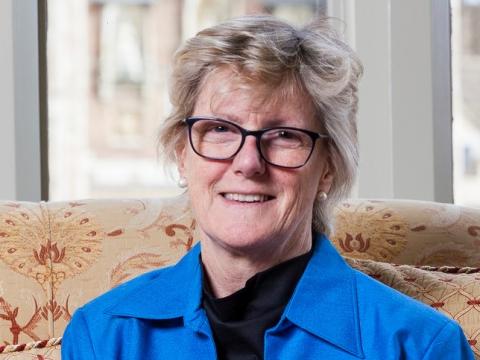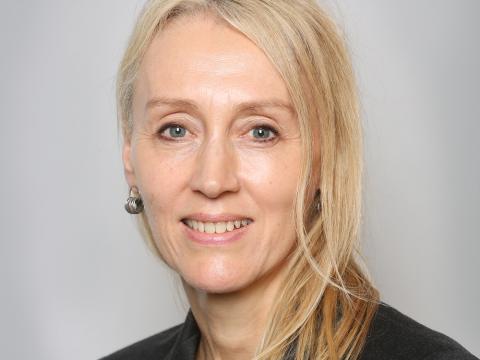Webinar: Overcoming short-termism after COVID-19 How can policymakers better prepare for the future?
24 September 2020

COVID-19 has shown clearly why governments need to prepare for an uncertain future. Preparation means more creative strategic thinking, more analysis of what might be ahead, and an acceptance of the value of reserve capacity to mitigate risk. Could the pandemic be a re-defining moment for how the UK government prepares for uncertainty, plans for the long-term and thus builds resilience?
This won’t happen by accident: policymakers have strong incentives to pay attention only to the short-term. What are convincing arguments as to why they should change? What else would make them, and their successors, do it?
Catch up on this webinar, recorded on the 24 September, where we considered these issues and the practical steps which can be taken now to strengthen capacity for long-term thinking and dealing with uncertainty in UK policymaking – steps that might be hard-wired into normal policymaking now and in the future.
A subtitled version of this webinar will be available to watch shortly.
Speakers
Jonathan Boston is Professor of Public Policy in the School of Government at Victoria University of Wellington.
His research interests include: climate change policy (both mitigation and adaptation); child poverty; governance (especially anticipatory governance); public management; tertiary education funding (especially research funding); and welfare state design.
He has served at various times as the Director of the Institute of Policy Studies and the Director of the Institute for Governance and Policy Studies at Victoria University of Wellington. In the early 2000s he served as a member of the Tertiary Education Advisory Committee and helped design and implement the Performance-Based Research Fund in New Zealand’s tertiary education sector. During 2012–13 he co-chaired the Expert Advisory Group on Solutions to Child Poverty in New Zealand.
Recent books and major reports include: Child Poverty in New Zealand (with Simon Chapple) (2014); Governing for the Future: Designing Democratic Institutions for a Better Tomorrow (2017); Safeguarding the Future: Governing in an Uncertain World (2017); Foresight, Insight, and Oversight: Enhancing Long-Term Governance through Better Parliamentary Scrutiny (with David Bagnall and Anna Barry) (2019); and Transforming the Welfare State: Towards a New Social Contract. He is the editor of Policy Quarterly.
Jill Rutter is a Senior Fellow at the Institute for Government where she has worked on Brexit, better policymaking and more general civil service and government issues.
She is also a Senior Research Fellow at UK in Changing Europe. She was previously a civil servant holding posts in HM Treasury, 10 Downing Street and DEFRA.
Dame Sally is Master of Trinity College at the University of Cambridge.
She was formerly the Chief Medical Officer for England and Chief Medical Advisor to the UK Government. She is a Fellow of the Royal Society and a Fellow of the Academy of Medical Sciences. She was made Dame Commander for services to Medicine in 2009.

Chair
Dr Jennifer Dixon joined the Health Foundation as Chief Executive in October 2013.
Jennifer was Chief Executive of the Nuffield Trust from 2008 to 2013. Prior to this, she was Director of Policy at The King’s Fund and was the policy advisor to the Chief Executive of the National Health Service between 1998 and 2000. Jennifer has undertaken research and written widely on health care reform both in the UK and internationally.
Originally trained in medicine, Jennifer practised mainly paediatric medicine, prior to a career in policy analysis. She has a Master’s in public health and a PhD in health services research from the London School of Hygiene and Tropical Medicine. In 1990–91, Jennifer was a Harkness Fellow in New York.
Jennifer has served as a Board member on several national regulatory bodies: the Health Care Commission 2004–2009; the Audit Commission 2003–2012; and the Care Quality Commission 2013–2016. She has led two national inquiries for government: on the setting up of published ratings of quality of NHS and social care providers in England (2013); and on the setting up of ratings for general practices (2015). She was also a member of the Parliamentary Review Panel for the Welsh Assembly Government advising on the future strategy for the NHS and social care in Wales (2017–2018).
In 2009, Jennifer was elected a fellow of the Royal College of Physicians, and in 2019 was elected as a fellow of the Academy of Medical Sciences. She was awarded a CBE for services to public health in 2013, and a Doctor of Science from Bristol University in 2016. She has held visiting professorships at the London School of Hygiene & Tropical Medicine, the London School of Economics, and Imperial College Business School.

Further reading
Work with us
We look for talented and passionate individuals as everyone at the Health Foundation has an important role to play.
View current vacanciesThe Q community
Q is an initiative connecting people with improvement expertise across the UK.
Find out more

